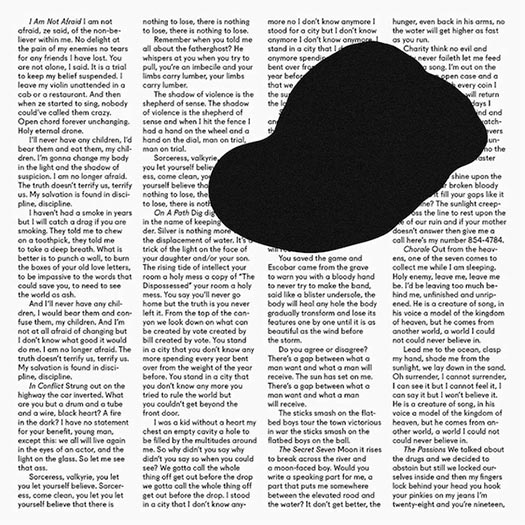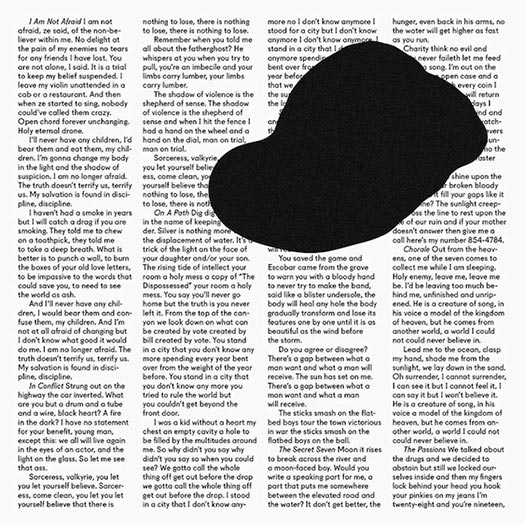
His vocal phrasing is smart — from his shaping of individual notes to the way he accentuates certain words or syllables in a passage to voice them like the natural flow of speech. Many contemporary pop artists, and even songwriters, don’t have much regard for conversational lilts in lyrics — not in the meanings of the words, but in in making those word-sounds more than just notes. Katy Perry probably wouldn’t say “un-CON-di-SHUN-uh-LEE,” so why would she sing it with the emphasis on those syllables?
Owen Pallett – “Song for Five & Six” Music Video
This is by no means a sweeping indictment of pop music vocals, nor a presumption that Pallett is operating from some kind of pop-averse stance: Pallett himself has written an entertaining apologia for Slate on behalf of the compositional choices in Perry’s “Teenage Dream” and other hits. His own voice, though, doesn’t have an exact analog in the current landscape. In terms of timbre and vibrato, he can take on a Jennifer Warnes quality. Purely in terms of execution and not sonics — i.e., what he’s capable of and how thoughtfully he delivers it — he’s a less-belty Kelly Clarkson.
There are times when the synthesizers (including the ARP 2600 and Roland Juno-60) and strings wash over Pallett’s voice to become not only the lead instruments, but the instruments mixed highest. Brian Eno assists in places on In Conflict, and Pallett’s idiosyncratic production almost certainly takes some inspiration from the electronic-music giant and erstwhile Roxy Music synthesist.
Pallett’s creative choices extend to cultural references, which are well-played here. By the time one absorbs the sly hat-tip to Arthur Russell on “The Passions” (“the innocent fun soon-to-be” recalls the title of a track on Russell’s World of Echo), he’s on to a lover playing The Smiths’ The Queen is Dead. It fits neatly into the narrative and doesn’t feel like a perfunctory 1980s exhumation.
One might also pick up certain cues that the artist may not have intended. There’s a musical phrase in “I Am Not Afraid” that’s reminiscent of the piano breakdown in a 1970s Sesame Street short film about a rural milkman rushing to feed a baby; the phrase is used more decoratively here, and is not as much a driving force in the song, but it’s noticeable. The chord voicing of the strings that open “I Am Not Afraid” (and In Conflict as a whole) could be a callback to ABBA’s “One of Us”; they’re even in the same key. And whether Pallett means to or not, the key melody of “The Passions” dips into “The Girl From Ipanema.”
Pallett takes a deft touch with pastiche; he also syncretizes the academy and the new-music frontier, combining traditional classical instrumentation and the ever-expanding field of synthesizer technology. This meeting-of-minds hearkens back to disco without In Conflict being disco. The strings are made disco classy, a way to get suburbanites into their Saturday night finery and out on the floor, and the synths take them to outerspace once they are there. In Conflict will reach out to NPR listeners with orchestra season subscriptions, and it might propel them to investigate the Eno credit in the liner notes, and that lays the way for vast multitudes to astral travel. (And Coldplay.) (But also No New York.)
It’s not likely “classy” is indeed what Pallett is aiming for — rather that classical is his arsenal, something he’s been equipped with for so long it’d be awkward to pretend otherwise. Luckily for us, he comes armed with some top gear.

SEE ALSO: DAPHNI, OWEN PALLETT’S COLLABORATION WITH CARIBOU
Ω






